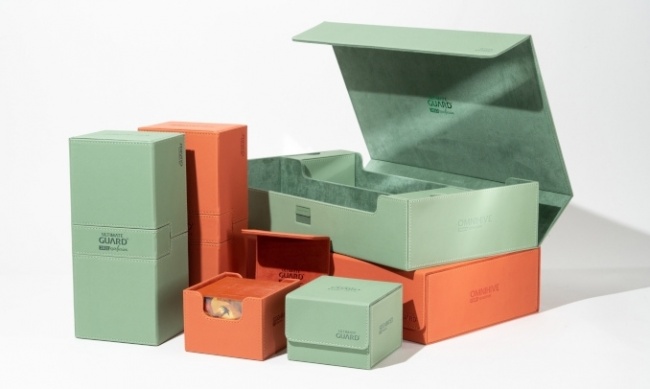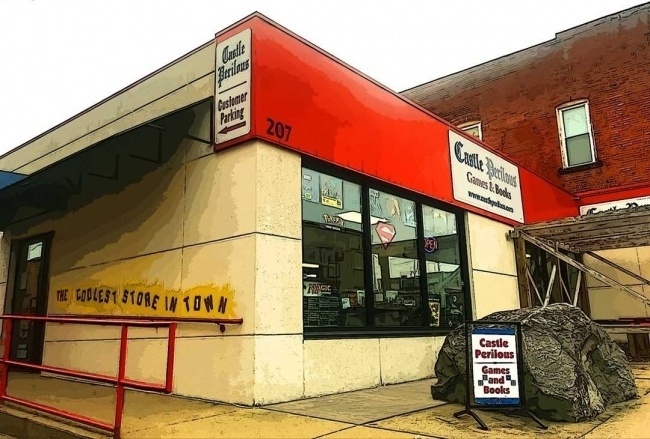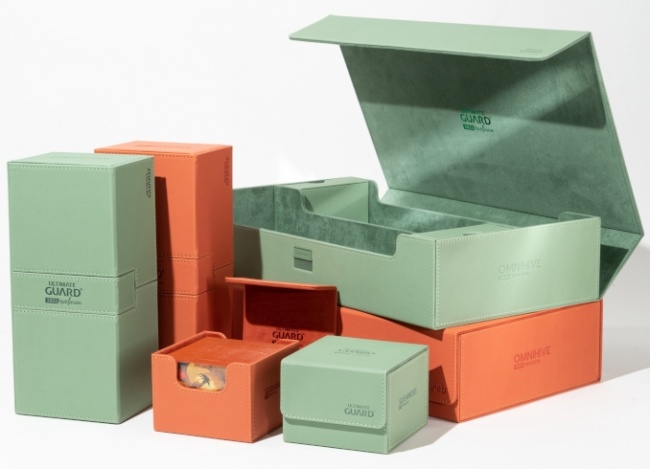Rolling for Initiative is a weekly column by Scott Thorne, PhD, owner of Castle Perilous Games & Books in Carbondale, Illinois and instructor in marketing at Southeast Missouri State University. This week, Thorne shares his observations on the games industry in 2021.
Paraphrasing a quote from Monty Python and the Holy Grail, the brick and mortar retail store is "not dead yet". According to eMarketer, growth in brick-and-mortar retail stores outpaced that of online sales and saw their largest growth rates since 2021. Projected ecommerce sales for 2021 are $933.3 billion, up just under 18% while brick and mortar grew 6.3% to $5.149 trillion. With longtime DTC retailers like Warby Parker, Allbirds, and Wayfair opening up brick-and-mortar storefronts, and according to The Wall Street Journal, Amazon planning on opening brick-and-mortar department store locations. Given this year’s sales, it is a good bet that brick-and-mortar locations will be around for a good long time (see "Good Retail Season").
Here are some other observations of note from the year 2021:
The Rise of NFTs. Although there is a lot of interest in NFTs (non-fungible tokens), they seem more a solution in search of a problem. One of the major advantages of the Interest is the abundance of virtual goods. Once a publisher produces a game (or comic) and uploads it to the internet, they can, for all intents and purposes, produce an infinite number of them. Infinite shelf space has always proved a major selling point for online retailers, AKA "The Long Tail", so anything reducing the availability of those virtual goods seems to run counter to the nature of the internet. The collectability of physical goods, until recently, has always been driven by a "Hey there is this thing that was produced a while ago and now more people are wanting it but there are only a few remaining" mentality. Now, much of the demand by collectors appears driven by FOMO and created, as opposed to perceived, scarcity and reminds me of the tulip bulb frenzy of the 17th century and subsequent bubbles. After all, a speculative asset is only worth as much as the next person is willing to pay.
Eco-Friendly Game Accessories. Ultimate Guard released a set of their Boulder card boxes, made from sustainable materials but we haven’t seen a number of companies following suit. According to Retail Brew, consumers are roughly evenly split on the importance of a retailer stocking renewable products or embracing renewability. Don’t get me wrong, I think sustainability is important, but the current research and the students in my Consumer Behavior course indicate that it is not a major factor in their purchase decision. And, in fact, they both argue against the purchase if a sustainable product costs more.
Supply Chain Problems. As I have noted before, difficulties with the supply chain have probably caused the most problems this year (see "Too Much Stuff? Probably"). We've seen shortages of basic game accessory items like card boxes, sleeves, and even top loaders. It does appear that the slowdowns have finally started easing, though we probably won’t see shipping back to normal until mid-2022 (see "Rolling for Initiative -- When the Carrot Does Not Work"). Despite all of the talk about reshoring production and moving manufacturing back to the U.S., I haven't heard a lot of discussion from companies about actually moving production back to the U.S., as our costs remain significantly higher than production in China and it would take several years to shrink the supply chain. I could see companies eyeing moving production to Mexico, which would also have low production costs with the advantage of a much shorter transit time.
Other trends of note? Post them in the comments or email castleperilousgames@gmail.com. Merry Christmas and Happy Holidays to you and yours!
The opinions expressed in this column are solely those of the writer, and do not necessarily reflect the views of the editorial staff of ICv2.com.

Column by Scott Thorne
Posted by Scott Thorne on December 20, 2021 @ 2:17 am CT




